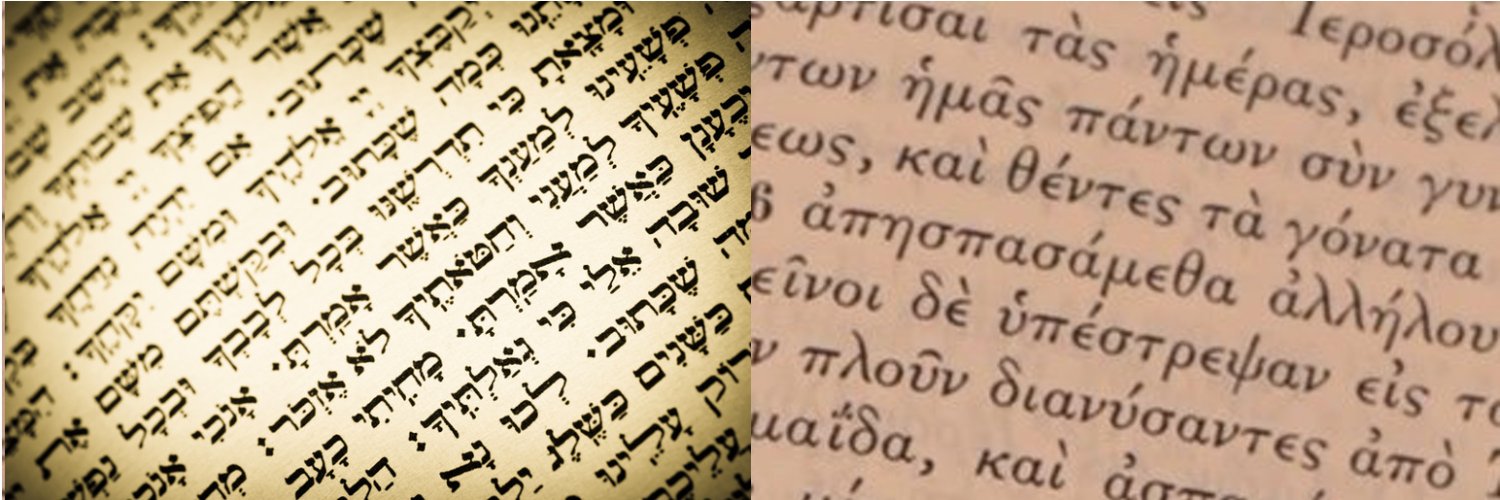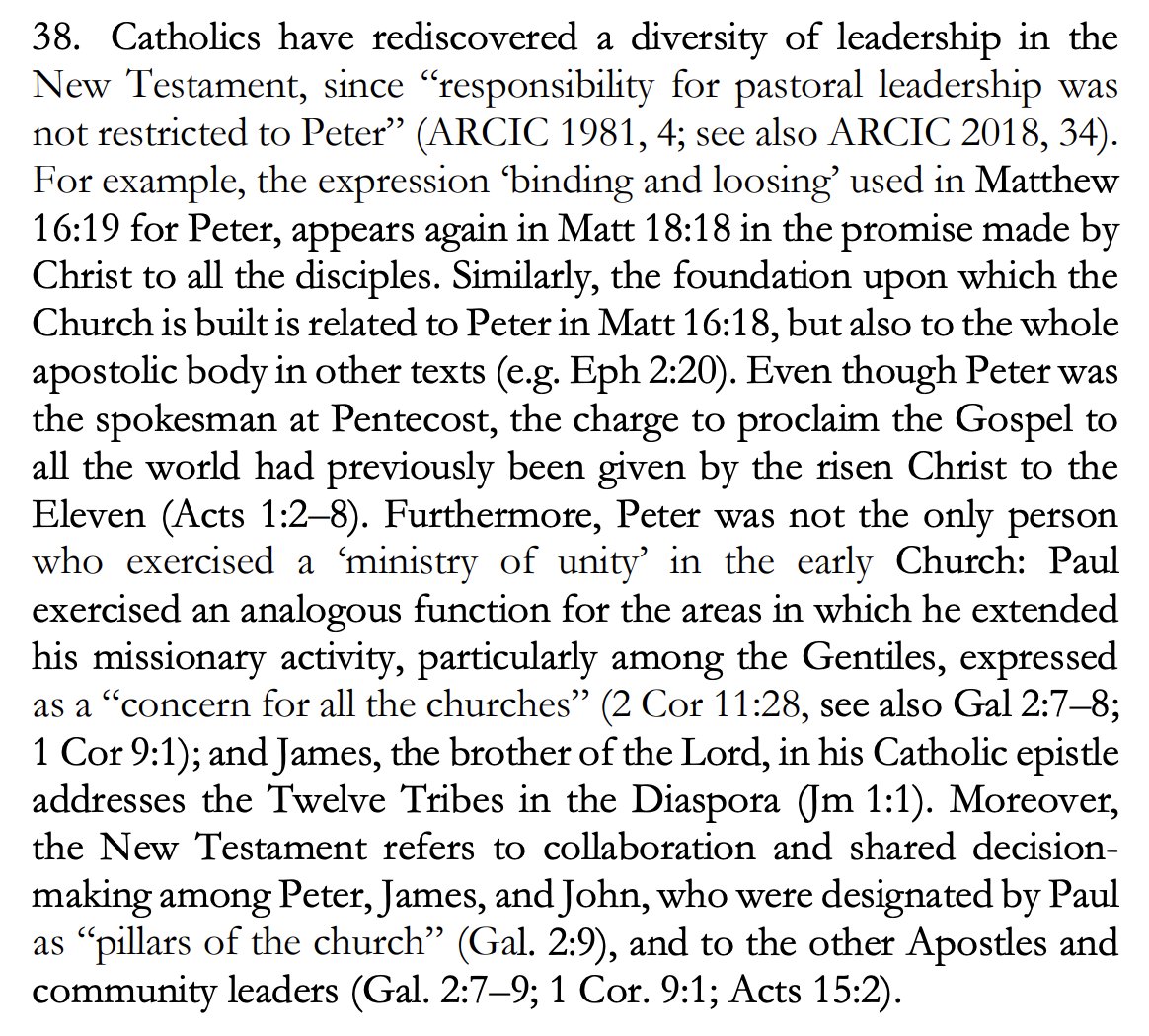
Matt Ferris
@ferrismattic
Opsimath. Posts about the Greek NT, and music observations. Aspiring Hebraist. Puns. Composer, (https://www.youtube.com/@gentlemantheologian)
God's Salvific Will in 1 Timothy 2: A Case Study on the Extent of the Atonement. (Many thanks to @_TheoMed who provided invaluable editorial help.) academia.edu/110459289/Gods…
I didn't realize until recently that John MacArthur had studied under Charles Feinberg. Feinberg had studied under Lewis Sperry Chafter at Dallas. It explains why he was a Calvinist Dispensationalist.
Grandkids: "Can I look at pictures on your phone?" .... "Why do you have so many pictures of books?"
The Abrahamic Covenant is the title deed to the land. It is unconditional. The Mosaic Covenant is the house rules—the conditions for dwelling in the land. The New Covenant is an unconditional replacement for the Mosaic. It is like new house rules, with the power to keep them.
For some time, I, too mistakenly thought "begs the question" meant "raises the question." But it does not. It means "assumes the conclusion."

If we confess our sins, he is faithful and just to forgive us our sins and to cleanse us from all unrighteousness. 1 John 1:9 This may be inferential, but I don't think it's an overreach. If we are cleansed from all unrighteousness, where does that leave us if not righteous?
This point is all the more emphatic by the fact that in 1999, Pope John Paul II apologized for the "cruel death" of Jan Hus, expressing deep sorrow for Hus' death and praised his moral courage.
Maybe the most controversial section of @gavinortlund’s new book.
From a 2024 document published by the Discastery for Promoting Christian Unity, "The Bishop of Rome: Primacy and Synodality in the Ecumenical Dialogues and in the Responses to the Encyclical Ut Unum Sint." A different take on the Petrine texts than in the past. ht:@DrJulesGomes

Some important conclusions from historian Everett Ferguson’s magisterial 975-page tome, Baptism in the Early Church: History, Theology, and Liturgy in the First Five Centuries (Eerdmans, 2009): Is there evidence for infant baptism exist before the second part of the second…
"When fourth-century fathers and councils attempted to regulate the 'canon' they were doing little more than codifying what was already almost universally accepted." —John Barton, Holy Writings, Sacred Text: The Canon in Early Christianity
All of this to say that, —> Thus, "If you can cut a word, cut it." —George Orwell
I wrote this sentence and didn't even realize I punned. I can stop anytime I want. "He upbraids the Jewish leaders for their twisting of Scripture in order to shirk their responsibility to support their parents."
“According to Deut 31.22ff. Moses actually reckons with certain disobedience of the generation which follows. The central theological emphasis is that Moses, the mediator of the covenant, transfers his unique role to a written record.” —Brevard Childs
When I read Prof. Barrett's justification for episcopacy, I cannot help but see it as a preference for history over revelation. That is, of making history prescriptive rather than descriptive. That subsequent history developed it is true, but mono-episcopacy is not in the NT.

What do Thomas Aquinas, St. Bonaventure, and Bernard of Clairvaux all have in common? They were all opposed to the doctrine of the Immaculate Conception of Mary.
Many have extolled Newman's Essay on the Development of Christian Doctrine as masterful. But in Roman But Not Catholic, Jerry Walls has a trenchant analysis that, imo, dismantles the whole edifice Newman constructs.

"It may be objected that its inspired documents at once determine the limits of its mission without further trouble; but ideas are in the writer and reader of the revelation." Who knew John Cardinal Newman was a postmodernist?
Is anyone among you sick? Let him call for the elders of the church, and let them pray over him. James 5:14 Note that elders is plural, church is singular. The evidence for plurality of oversight is all over the NT. I have been critical of traditions that have separated bishop…
...you have seen the purpose of the Lord, how the Lord is compassionate and merciful. James 5:11 I think the ESV missed here. The word for compassionate is πολύσπλαγχνος (polusplanchnos) very compassionate. That is, the prefix πολύ (poly) means something. "Of much compassion."
What is your life? For you are a mist that appears for a little time and then vanishes. James 4:14 mist is ἀτμίς (atmis) vapor, related to the word ἀτμός (not found in the NT), whence "atmosphere." ἀτμίς occurs 2X, here and Acts 2:19